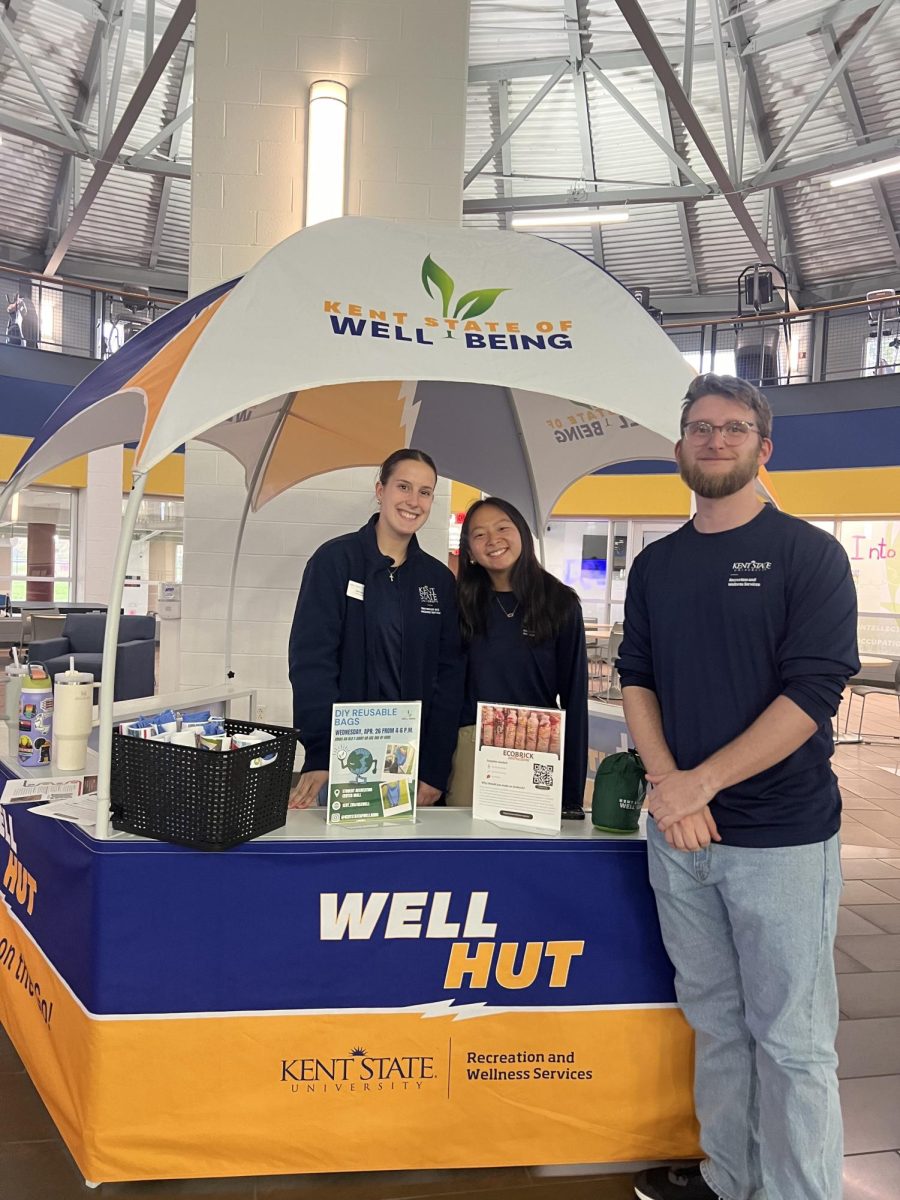I’ve never seen a train crash, but I have been close to a train (The side effects of being a teenager in Ohio). Close enough for my hair to whip at my face as I turn to my friend and scream to be heard over the clicks of the tracks and the bellow of the horn. We watch the light dance across our faces, broken up by the slats in the tracks.
I think if that train were to crash, I would have watched. It would have been with a tight chest and a growing feeling of unease, but regardless, I don’t know if I would be able to look away.
Looking away from something means that there is an uncertainness about the event. It’s why we watch movies we’re afraid of through cracks in our fingers, rather than just closing our eyes. Bypassing the horror means anything could have happened.
While I would never go out of my way to watch or listen to true crime, the times I’ve stumbled across it, I’ve been unable to stop watching. Last week, while scrolling through TikTok, I came across a girl doing a “get ready with me” video while telling a true crime story. In between applying blush and curling her eyelashes, she spoke of a brutal murder. In a monotone voice, she recounted every morbid fact, pausing only to share the name of the product she was using and finishing the video with a bright smile.
There is often an innate curiosity for humans to engage in something that shocks or disturbs them. It’s why we watch horror movies or turn our heads to look at a car crash.
When we engage in these activities, we are aware that what we are consuming is macabre. Out of curiosity, or shock value, we make a conscious choice to engage in an activity that will leave us with some capacity for an emotional reaction. When we can consume or discuss haunting crimes with no reaction, however, that curiosity transforms into desensitization.
When true crime is stated so bluntly, with little regard to the fact that the crime in question was real, viewers are able to establish some cognitive dissonance. If the story is told with little regard to human life, it’s easy to forget there ever was one.
The desire to learn about true crime is understandable. For some people, it can be a survival instinct or a cautionary tale that hits close to home. For others, it’s a sense of justice or a way to remember the victim. Regardless of the reasoning, the basis of pursuing true crime is some level of curiosity. As true crime podcasts top the charts, the lines between curiosity and entitlement start to blur.
This entitlement manifests as a desire to learn every intimate detail of the crime at all costs. An obsessive interest in the motive or killer is often due to a perverse desire to uncover shocking information. Cases that are most mysterious, gory or unsolved are most susceptible to being picked apart mercilessly. The victim is no longer the main focus of the crime. Instead, viewers will focus on creating theories about what happened and why, even if these theories have no basis of fact.
While an interest in the conclusion of an unsolved crime is natural, more caution should be taken when discussing it. The case of JonBenét Ramsey continues to draw interest almost 30 years later because her death and the events that surround it don’t make sense.
The overwhelming draw to her story has resulted in several theories and an enormous desire to know what actually happened. That need to uncover the truth has led to a general disconnect between JonBenét and her death in the media. Rather than a six-year-old girl, she is treated as a vessel for new theories, intimate details about her shared with no regard to her humanity. The in-depth analysis on her life and death causes some people to treat her case as if they knew her personally, jumping to wild conclusions and speaking of it in a way that feels exploitative.
The fine line between informative and exploitative becomes smaller as there becomes a larger market for true crime. There is danger in true crime entertainment as a whole, including the fact that it is even called entertainment when it is a real thing that happened to someone. When movies and books call themselves “true crime” and then blur the lines between reality and cinematic flair, that becomes a problem. Even the most respectful documentaries and podcasts will naturally add a certain value of entertainment because their very existence relies on entertaining.
Consuming true crime content is not inherently a bad thing, but it’s concerning when it’s popularized to the point that we are desensitized to hearing morbid crimes. Curiosity is natural, but there is no guarantee or expectation that it will be satisfied.
Deconstructing a person’s entire life for the sake of turning their death into entertainment is not informative or educational. It’s cruel.
Kaitlyn Mitchell is an opinion writer. Contact her at [email protected].




















